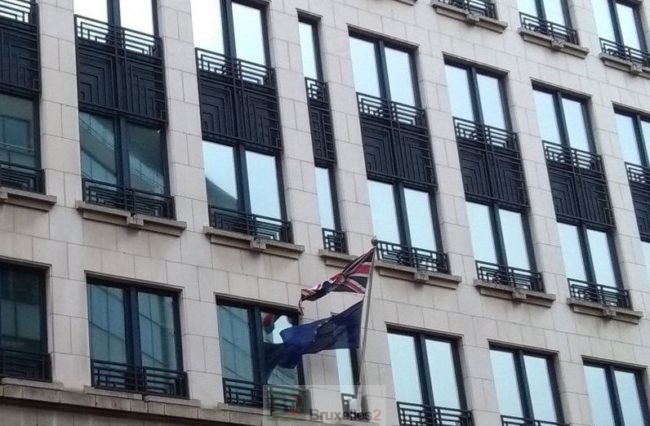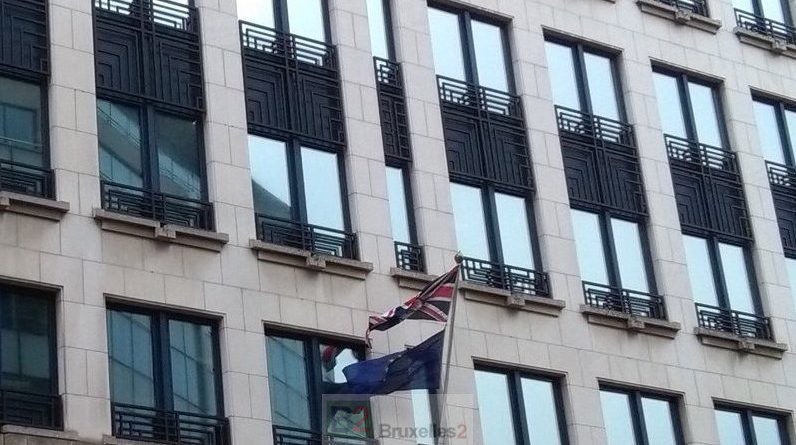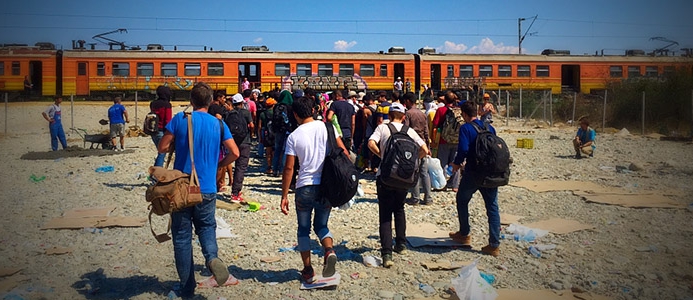Brexit. British diplomats deprived of badges, cafeteria and influence
(B2) In Brussels, in the European district, there will be no transitional period, Brexit will be effective immediately, for all British diplomats

The flag lowered on the permanent representation
From midnight Friday, the European flag will be lowered in front of the permanent representation of the United Kingdom to the European Union. A discreet hovel, nestled above the Byblos 1898 café, a stone's throw from the Schuman roundabout, a strategic point of Europe in Brussels. This will also change its name, becoming a simple 'mission' to the European Union (as for any third country).
The badge deactivated, a world is dying
For several dozen citizens of Her Royal Majesty who work there, it is more than a symbol. This withdrawal has a very precise reality. From Monday, the small white plastic badge with the European flag, which until now served them as a sesame, to enter day and night in European buildings, will be deactivated. They will no longer be able to come and go, as they see fit, in particular at the Justus Lipsius, the parent company of the Member States of the Union, seat of the Council of the EU.
Private meetings, and computer access...
From Monday, they will be persona non grata at all the meetings, ministers as well as ambassadors or some 150 groups of experts who laboriously, each week, work out the European doxa. They can only be there by invitation. And even " exceptionally I was confirmed. No question of seeing them come back through the window when they slammed the door with a loud crash. " This is the very logic of Brexit. Tomorrow, the United Kingdom will no longer be part of the European Union. It becomes a third country “says an expert of the place. They will no longer be able to access the internal system where agendas, preparatory documents for meetings, texts submitted to the vote, etc. circulate. They will thus be deprived of information, the vital foodstuff of plants in Brussels.
... cafeteria
They will no longer even have the right to go up to the cafeteria of the fifth (the '50' in Brussels jargon), reserved for 'diplomats' and others happy few. One of the essential places of Brussels diplomacy. They will no longer be able to hold secret meetings in the corridors, or even to meet, unexpectedly, journalists at the press bar to do a work of conviction. In a word, they are no longer part of the club and will lose a good part of their influence.
(Nicolas Gros-Verheyde)
Geographic proximity
The British, however, retain a size advantage. Of all the members of the EU, they were the ones who were physically closest to the institutions. Irony of history. It only took them a few strides and one minute to get to the location at the Council of the EU or the European Diplomatic Service (EEAS), three minutes to go to the European Commission or Europa building, the seat of the European Council. A proximity which will be even more useful to them than before to go and meet the diplomats of the other 27 member countries which remain in the Union.
Extended and completed version of the paper published this morning in Sud Ouest

